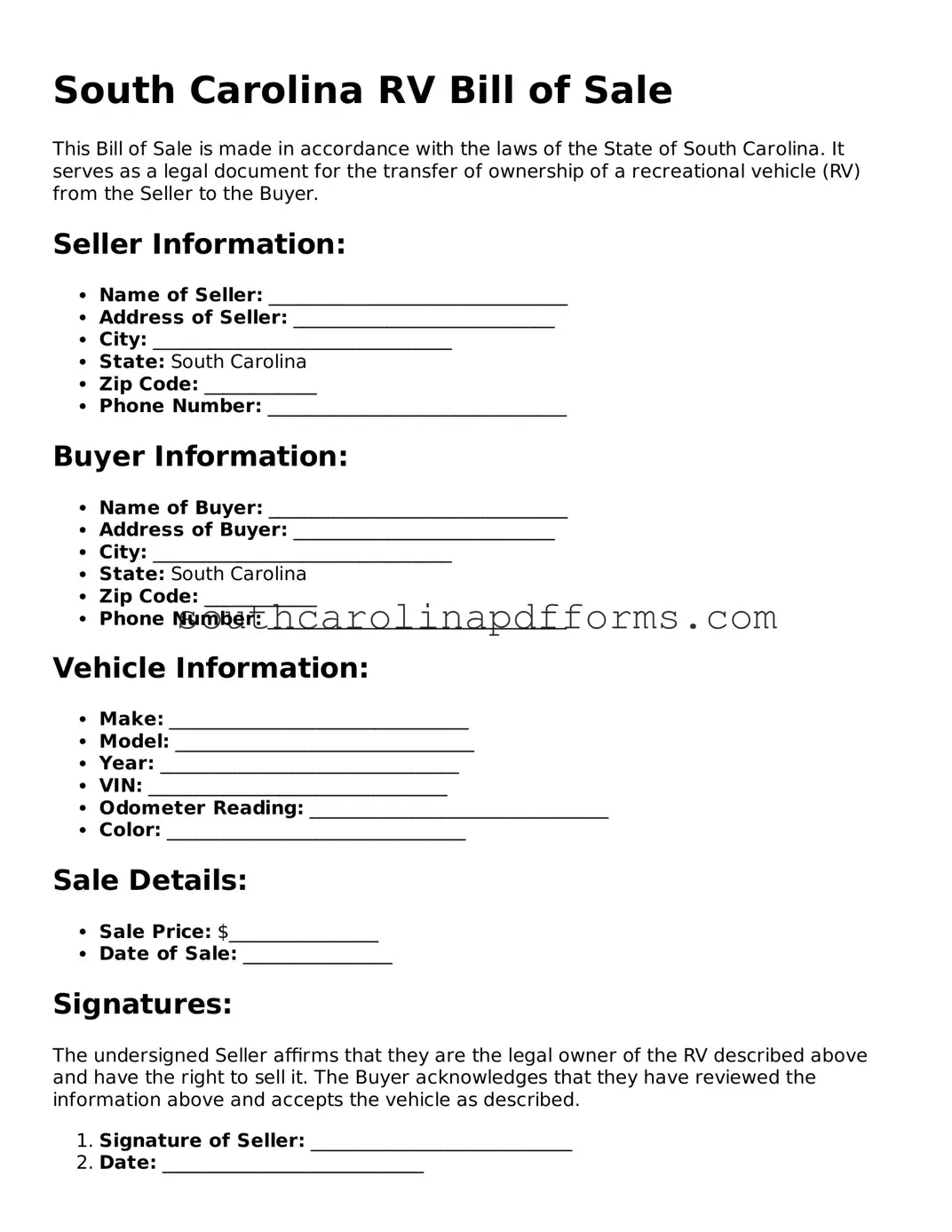Attorney-Approved South Carolina RV Bill of Sale Document
The South Carolina RV Bill of Sale is a legal document that records the transfer of ownership of a recreational vehicle from one party to another. This form serves as proof of the transaction, detailing important information about the RV, the buyer, and the seller. Understanding this document is essential for ensuring a smooth and lawful transfer of ownership.
Access RV Bill of Sale Here
